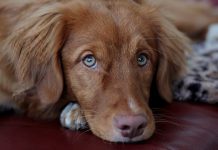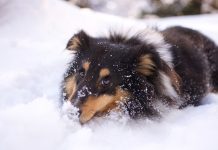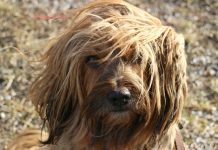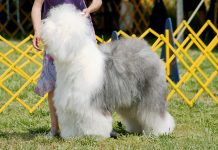Coccidia in dogs is probably not the most beautiful experience for animal lovers. The unicellular parasites nest in the intestines. However, they are not to be confused with worms. The Buzz guide offers all information about infection, symptoms, and treatment.
Coccidia in puppies
- Coccidia are parasites that nestle in their host’s intestinal wall
- They can cause severe diarrhea, especially in puppies and young dogs
- The infection takes place via dirt, droplet, and smear infection
- Adult, healthy dogs can handle an infestation on their own
- Coccidia can also be transmitted to humans
What is coccidia?

Coccidia is a unicellular parasite belonging to the protozone genus. They nest in the cells of their host’s intestinal wall and completely hollow them out. Coccidia is also characterized by the fact that they reproduce asexually by splitting at breakneck speed. Within a short time, large parts of the intestinal mucosa are destroyed. Puppies and young dogs, in particular, are at risk due to their still weak immune system; in adult animals, an infestation in most cases has less serious consequences.
How does my dog get infected?
The infection usually occurs through contact with the feces of infected dogs. For this, it is sufficient that the fur nose only sniffs at the excretions, but sometimes dogs even eat the excrement of other people. Larger breeds and packs are particularly affected. If the dog eats infected animals in the wild, for example, infected rodents or birds, an infection can also take place. The parasite is also transmitted through the animals’ saliva.
What are the symptoms?

In adult, healthy dogs, an infestation is often completely symptom-free. Nevertheless, it may have ingested the parasites, excreted through the feces, and infected other animals. A massive infestation, as well as an infestation in puppies, leads to (in bad cases bloody) diarrhea in varying degrees. It can be mushy, thin, and even watery. In this case, weight loss, weakness, and dehydration soon occur. Recurrent diarrhea without an apparent cause can often be traced back to coccidia.
How to treat coccidiosis
If a healthy, adult dog is attacked, it can usually cope with the defense on its own. A visit to the vet and medication treatment is then not necessary. With puppies and young dogs, however, it looks different. The immune system of young animals is often not yet strong enough to fight off parasites. Diarrhea in the puppy will then become more fluid with each passing day. There is a risk of weight loss and dehydration. The young animal is also very weak. A visit to the vet is therefore strongly recommended for puppies. The veterinarian will then do a parasitological fecal examination and then prescribe appropriate medication. After a few days, the little one should feel better.
After the illness: write hygiene even bigger
Hygiene is essential in the fight against coccidia. All textiles with which the dog has come into contact must be added to the washing machine and boiled out. The bacteria die at temperatures above 55 ° C. A steam cleaner is useful for other utensils.
Can coccidia be transmitted from dogs to humans?
There are many subspecies of coccidia. The good news is: not all are transferable to humans. The bad news is: Unfortunately, most of them do. As a rule, the transmission takes place via smear contact, droplet infection, or simply via skin and textiles. If dogs and cats lick each other’s fur and their owner’s stroke them, an infection is very likely. However, owners usually only notice slight irritations in the digestive system. Diarrhea is also possible. The human organism usually copes with an infection quite well – provided it was healthy beforehand. So you can mostly count on the fact that coccidia poses no danger to humans.
Our recommendation: prevention – as far as possible!

Hygiene is the best way to prevent coccidia in dogs. This is particularly important when keeping multiple dogs. Fur noses who enjoy plenty of exercise in the woods and meadows are also susceptible. They come into contact with other host carriers and their droppings particularly frequently. Regular boiling of dog blankets, dog beds, and other popular textiles is helpful. This is the best way to prevent transmission.






























